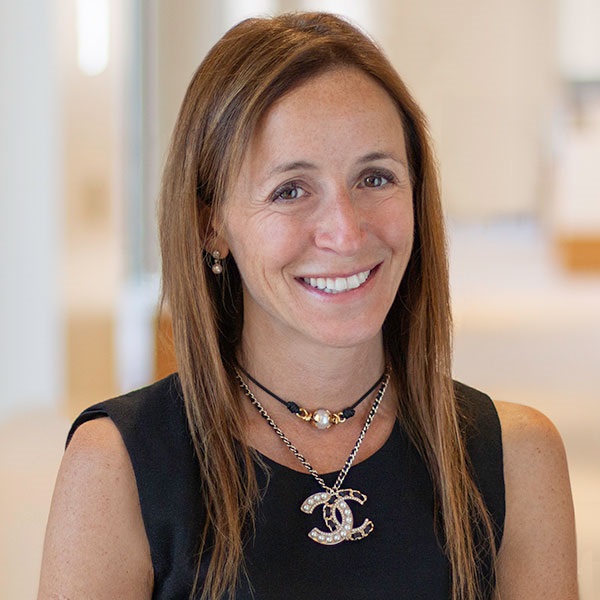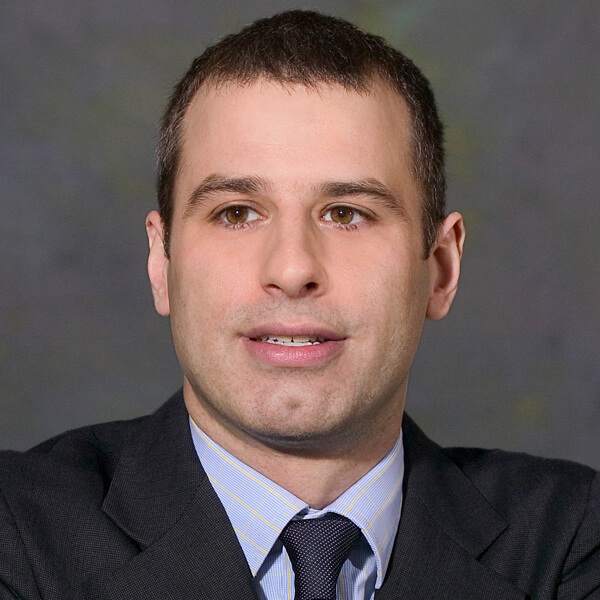Capital IdeasTM
Investment insights from Capital Group
Equity
- A growth and income approach allows portfolio managers complete discretion to choose what they view as being the most attractive investment opportunities across the entire yield spectrum.
- The Russia-Ukraine conflict is redefining certain concepts within ESG, particularly in relation to sectors such as energy supply and defence.
- In a tough economic environment, a robust due diligence approach should help ensure we have confidence in a company's ability to continue to pay dividends.
In this paper, Capital Group European Growth and Income Fund (LUX) (CGEGI) portfolio managers Caroline Randall and Alfonso Barroso discuss how they approach investing and share their views on ESG and the macro backdrop in Europe.
Can you elaborate on the growth and income philosophy of CGEGI and how that informs your positioning?
Alfonso: For me, one of the most attractive features of the growth and income approach is that it gives managers complete discretion to choose what they view as being the most attractive investment opportunities across the entire yield spectrum – they’re not funnelled into a narrow opportunity set. This means we can hold securities that have no yield, those that have a very high yield but very little growth, and those that have a high yield today but where we think a potential dividend cut may reduce the yield at some point in the future.
When investing, my personal approach is to think about the downside as much as the upside. This means the bulk of my portfolio is invested in stocks that I believe can comfortably generate a 6-10% total return. While this may seem to be a low bar given markets over the past five years or so, it means I can include defensive stocks that may hold up well in down markets. I can also find a place for idiosyncratic stocks with a high risk/reward, although the bar is likely to be higher for something that has more uncertainty.
Caroline: I think about EGI’s philosophy in terms of companies that can deliver growth of income, which means looking for companies that have strong earnings growth potential. So, for CGEGI, I generally look for a conservative, stable total shareholder return in which I have a high degree of certainty. This leads me towards companies with a 2-3% dividend yield and mid-single-digit earnings growth with the potential for price-to-earnings (P/E) multiple expansion.
How do you consider ESG in the fund?
Caroline: ESG is integrated into our investment approach at Capital Group through research, monitoring and engagement. We consider shareholder versus stakeholder pressure, exogenous factors and how those might impact valuations, and how companies’ capital allocation could impact future shareholder returns.
As we don’t tend to exclude stocks from the investment universe, we can take advantage of situations where valuations have been compressed to such a point that they are attractive and may account for the associated ESG-related risks. This is why CGEGI currently has defence, tobacco and energy holdings.
Alfonso: Exclusion as an ESG approach can be tricky and lead to unintended exclusions. Take National Grid, for example, which is often considered to be one of the most carbon-contributing companies. In reality, National Grid is an enabler of the energy transition and the world’s decarbonisation goals as it creates the infrastructure needed to connect offshore wind into the grid. In my view, without network transmission companies like National Grid countries will not be able to achieve our decarbonisation targets.
Risk factors you should consider before investing:
- This material is not intended to provide investment advice or be considered a personal recommendation.
- The value of investments and income from them can go down as well as up and you may lose some or all of your initial investment.
- Past results are not a guide to future results.
- If the currency in which you invest strengthens against the currency in which the underlying investments of the fund are made, the value of your investment will decrease. Currency hedging seeks to limit this, but there is no guarantee that hedging will be totally successful.
- Depending on the strategy, risks may be associated with investing in fixed income, emerging markets and/or high-yield securities; emerging markets are volatile and may suffer from liquidity problems.
Our latest insights
RELATED INSIGHTS
Past results are not predictive of results in future periods. It is not possible to invest directly in an index, which is unmanaged. The value of investments and income from them can go down as well as up and you may lose some or all of your initial investment. This information is not intended to provide investment, tax or other advice, or to be a solicitation to buy or sell any securities.
Statements attributed to an individual represent the opinions of that individual as of the date published and do not necessarily reflect the opinions of Capital Group or its affiliates. All information is as at the date indicated unless otherwise stated. Some information may have been obtained from third parties, and as such the reliability of that information is not guaranteed.
Capital Group manages equity assets through three investment groups. These groups make investment and proxy voting decisions independently. Fixed income investment professionals provide fixed income research and investment management across the Capital organisation; however, for securities with equity characteristics, they act solely on behalf of one of the three equity investment groups.
 Caroline Randall
Caroline Randall
 Alfonso Barroso
Alfonso Barroso